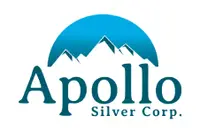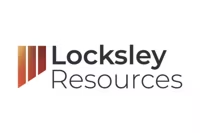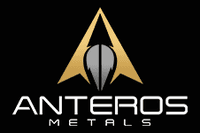Trevali Mining’s Backfill Tests at Caribou Indicate Feasibility
Trevali Mining Corp. (TSX:TV,OTCQX:TREVF,FWB:4TI) reported that a paste backfill test work, conducted by paste backfill consultancy Kovit Engineering from Sudbury, indicated that it is technically feasible to produce a paste backfill with the desired strength and flow characteristics from tailings material taken from Caribou.
Trevali Mining Corp. (TSX:TV,OTCQX:TREVF,FWB:4TI) reported that a paste backfill test work, conducted by paste backfill consultancy Kovit Engineering from Sudbury, indicated that it is technically feasible to produce a paste backfill with the desired strength and flow characteristics from tailings material taken from Caribou.
Paste backfill is used to utilize the waste ground rock material from the mineral processing plant, adding binding components, and injecting it back into post-mining open voids or stopes. It allows greater extraction of the mineral deposit, decreases waste rock dilution, and improves stop cycle time for improved efficiencies.
According to Kovit, implementation of a paste backfill system at Caribou could potentially increase life of mine and allow extraction of a greater portion of tonnages located in sill pillars; decrease waste rock dilution to 8-10%; and reduce surface tailings volumes by 40-50%.
As quoted in the press release:
There are 6.15 million tonnes grading 6.11% Zn, 2.49% Pb, 0.34% Cu, 67.8 g/t Ag and 0.86 g/t Au of estimated life-of-mine plant feed in the current Caribou mine re-start plan (see May 13th, 2014 news release TV-NR-14-07 and June 26, 2014 SRK Consulting PEA report “Technical Report on Preliminary Economic Assessment for the Caribou Massive Sulphide Zinc-Lead-Silver Project, Bathurst, New Brunswick, Canada”). Several of the key optimization opportunities and recommendations identified in the 2014 report include additional exploration drilling to fully define the Caribou geological system, which remains open for expansion, and the potential to maximize or increase the estimated life-of-mine plant feed by using paste backfill technology in particular to recover a significant portion of the 1.33 million tonnes of mineralization (comprised within the current resource) in the sill pillars that are currently excluded from the PEA mine plan.
Recent proof of concept exploration drill results clearly demonstrate that the Caribou deposit remains open for expansion — a 200-metre step-out drill hole intersected 50.9 metres of massive sulphide returning 5.08% Zn, 1.76% Pb, 0.37% Cu, 59.6 g/t Ag and 1.63 g/t Au (see April 16, 2015 news release NR-TV-15-07 for details).
… TESTWORK RESULTS
At Caribou, the paste backfill test work has been designed, supervised and conducted by Kovit Engineering, a Sudbury-based specialist in paste backfill consultancy. Testing, which is ongoing, utilized both historic and laboratory prepared tailings material. Results to date indicate that it is technically feasible to produce a paste backfill with the desired strength and flow characteristics from Caribou tailings material.
In summary, optimum results using a 5% binder addition achieved strengths between 700 and 1300 kPa at 7 days, 500-to-2500 kPa at 28 days and 250-to-850 kPa at 90 days. For reference, approximately 400 kPa at 14 days is required for mining stability of the hanging and foot wall rock and paste fill face.
Phase I test work focused on 100% Caribou tailings feed with modest cement addition to achieve desired strength requirements. Three binder types were tested: 90:10 general use cement/slag, high-sulphide cement, and general use cement.
Phase II test work, most recently completed, examined the potential advantages of utilizing local sand deposits located on the Caribou property as part of the paste backfill process in order to further improve paste characteristics and decrease estimated capital expenditure requirements by decreasing paste plant filtering requirements.
The estimated capital expenditure from basic engineering for a new tailings-sand backfill plant including new equipment, installation and initial surface and underground distribution network is estimated to range from $9-12 million including a 30% contingency. Estimated operating expenditure for a paste-plant is estimated at $8.50 per tonne versus $13.50 per tonne for dry backfill in the current PEA report.
Phase III test work will involve more detailed follow-up and optimization of sand-paste characteristics, detailed geological fieldwork on several sand deposits located on the Caribou property (four of which have been identified from the Geological Survey of New Brunswick databases and records), larger-scale test work using ‘fresh’ tailings from the Caribou plant once commissioning commences and ongoing mine plan optimization of potential additional tonnages available.
Contingent on the above results, detailed stope optimization, cost-benefit analysis and detailed engineering will follow.
Click here to read the Trevali Mining Corp. (TSX:TV,OTCQX:TREVF,FWB:4TI) press release
Click here to see the Trevali Mining Corp. (TSX:TV,OTCQX:TREVF,FWB:4TI) profile.



